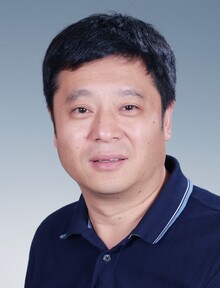Events
Mar 03, 2023
Seminar (2023-03-03)
School of Biomedical Sciences is pleased to invite you to join the following seminar:
Date: 3 March 2023 (Friday)
Time: 5:00 – 6:00 pm
Venue: Lecture Theatre 2, G/F, William M.W. Mong Block, 21 Sassoon Road
Speaker: Professor Hongkui Deng, Boya Chair Professor and Senior Investigator, Center for Life Sciences; Department Chair of Cell Biology, School of Basic Medical Sciences, Peking University
Talk Title: Chemical reprogramming of human somatic cells to pluripotent stem cells
Biography

Professor Hongkui Deng is a Boya Chair Professor and Senior Investigator of the Center for Life Sciences at Peking University. He is also Department Chair of Cell Biology at School of Basic Medical Sciences of Peking University Health Science Center. Since 2013, he has been the director of the Peking University Stem Cell Research Center. Professor Deng’s research focuses on somatic cell reprogramming and lineage specific differentiation of human pluripotent stem cells. In 2013, his lab developed a chemical reprogramming strategy to induce pluripotent stem cells from somatic cell types using only small molecules. This breakthrough has opened new avenues for manipulating cellular states or identities via chemical reprogramming, and his lab has recently applied this chemical approach in promoting tissue regeneration in vivo.
Abstract
Chemical stimulation by exposure to small molecules offers a new approach that can manipulate cell fate in a simple and highly controllable manner. Life processes are in essence comprised of dynamic chemical processes, and the use of chemical small molecules to regulate cell fate is theoretically the most direct and effective method. Recently we demonstrated that small molecules can effectively reprogram human somatic cells to pluripotent stem cells (Nature, 2022). This approach provides a new platform for the generation and application of human pluripotent stem cells in biomedicine.
In one such example, we established a protocol that generates functional pancreatic islet cells from hCiPSCs (Nat Med, 2022; Nat Metab, 2023). When transplanted, these hCiPSC-derived islets effectively ameliorated diabetes and restored endogenous insulin secretion in diabetic nonhuman primates. Our studies show the feasibility of transplanting hCiPSC-islets for diabetic treatment, marking a substantial step forward in clinical translation of hCiPSC-islets.
ALL ARE WELCOME
Should you have any enquiries, please feel free to contact Miss Angela Wong at 3917 9216.

